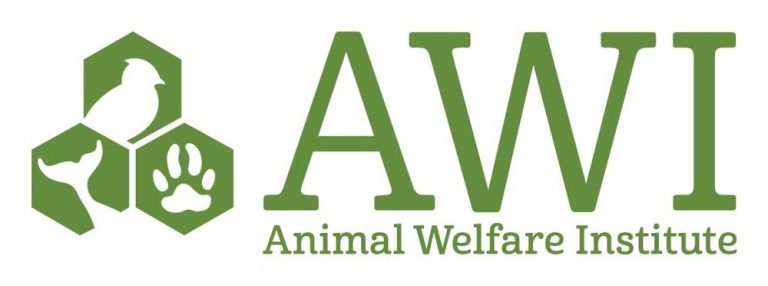Washington D.C, USA
The Animal Welfare Institute’s (AWI) was founded in 1951 by Christine Stevens (1918 – 2002), the wife of Roger L Stevens who once held a major stake in the Empire State Building in New York. As the first president of AWI, she was known to her supporters as the mother of the Animal Welfare Act (1966) and the Endangered Species Act (1973).
The Animal Welfare Insitute’s mission is to reduce the suffering caused to animals by ensuring that they are treated humanly. That especially applies to scientific research laboratories where AWI campaigns for rats and mice to have the same legal protection as, what it calls, non-human primates.
The Animal Welfare Institute believes that all whaling is inherently cruel. Therefore to end this ‘cruelty’, it launched the Save-the-Whales Campaign in 1971. AWI’s About Brochure claims that thanks in part to this campaign, the International Whaling Commission (IWC) instituted a moratorium on commercial whaling in 1986. At IWC, AWI works with other NGOs to deny the islanders of Bequia, part of St Vincent and the Grenadines, aboriginal or indigenous status, which gives them the right to continue whaling for nutritional and cultural subsistence. It’s a fight that AWI has lost several times. This defeat marks a rare victory for the pro-whaling lobby.
Boasting of its leadership role among NGOs, AWI’s 2019 annual report says that prior to the 70th CITES Standing Committee in Sochi, Russia (2018), it led a coalition of animal protection and conservation groups that provided legal analysis to the committee concerning the [whaling] issue.
Animal Welfare Institute says that there is no credible scientific evidence that trophy hunting benefits conservation or economic development. Hence it gives its support to the The CECIL Bill (Conserving Ecosystems by Ceasing the Importation of Large Animal Trophies Act ), which seeks to ‘Prohibit—absent a permit—trophy hunting imports of species that are proposed for listing as threatened or endangered under the Endangered Species Act (ESA)’. And also ‘prohibit importation of an elephant or lion trophy from Tanzania, Zimbabwe, or Zambia’. It’s a Bill that, so far, has failed to gain traction because it lacks sufficient sponsorship.
In response to the Covid-19 pandemic, AWI supports calls for a global shutdown of wildlife markets and a ban on international trade of live wildlife that is not intended for conservation. AWI also wants to ‘protect wildlife habitat to reduce direct contact with wild animals not tied to trade’.
In 2006, AWI established the Compassion Index (CI), which tracks the positions of Members of Congress ‘to see how much compassion they show on important animal protection measures’. Among other animal rights causes, AWI also opposes the ivory and rhino horn trades, farmed fishing, factory farms, and ocean theme parks.
Leaders
Cathy Liss, President, who joined AWI after graduating from university in 1982.
Liss is especially interested in sharks. In her view, ‘without sharks, the health and productivity of our oceans—and the human livelihoods that depend on them—are at risk. We need sharks in our oceans—not their fins in our bowls’.
Deputy President, Cynthia Wilson.
Governance
Independent Board of Directors, whose chairperson is Cynthia Wilson. Publishes annual report and audited accounts. Donations of USD35 or above qualify for ‘membership’, but this gives these so-called members no stake in AWI’s governance.
Finances
According to an independent auditors’ report, AWI’s total revenue was USD5,059,038 in 2018 and USD5,423, 343 in 2019. AWI’s expenses in 2019 were USD 4,129,428. More than 50 percent of which was spent on staff salaries, pensions, other related statutory overheads, staff benefits and consultants (see page 4). AWI received 45% of its contributions from four contributors in 2017, and approximately 23% from three in 2018, and around 31 % from three in 2019 (see page 10 and page 11 of audited reports).


